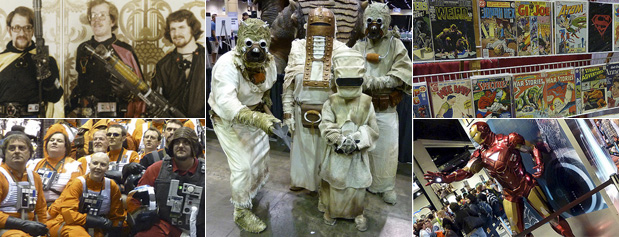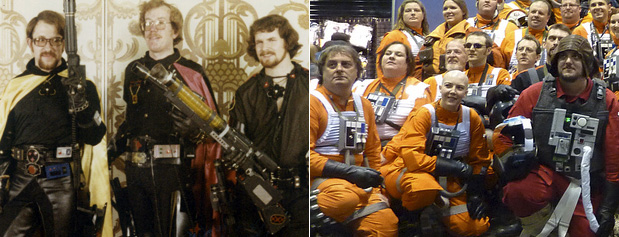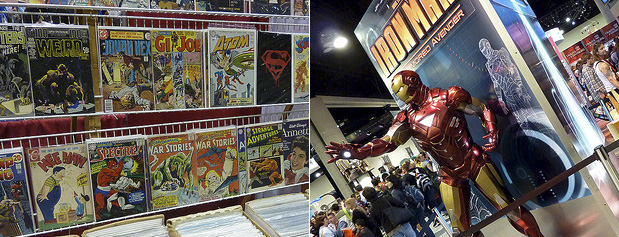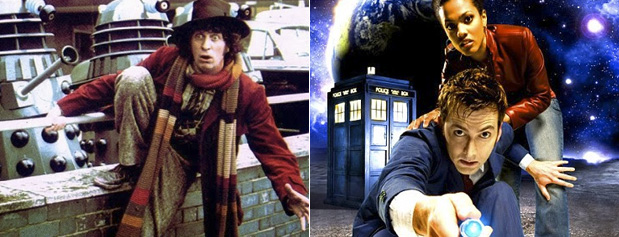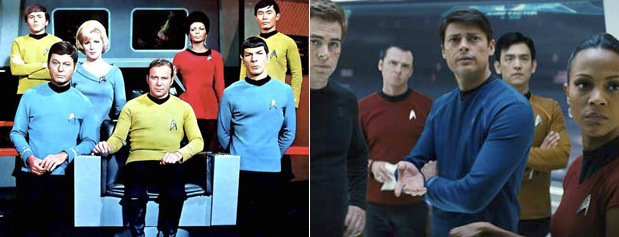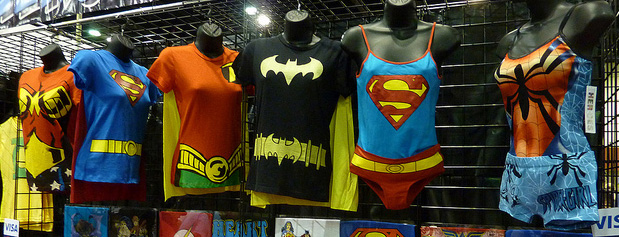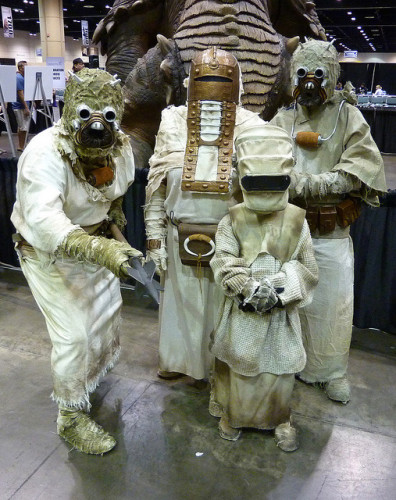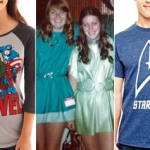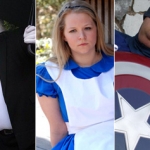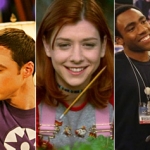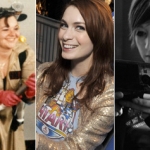Whether you like it or not, styling oneself as a geek/nerd has gone mainstream.
Add “geek” to your hobby, and you’ve got yourself a new fandom — Sports Geek, Film Geek, Photography Geek, Computer Geek, Knitting Geek, Gardening Geek, Barbie Geek — the list can be endless. It’s popular to be considered a geek/nerd. The same characteristics that caused many nerds bullying and ridicule during their school days are now celebrated as desirable and cool. Over the past decade, the film and television industry discovered that the traditional geek/nerd world of science fiction, superheroes, and smarts holds the key to massive revenue. The Marvel Universe movies number among the biggest blockbusters of the past few years.
The influx of new fans into the geek/nerd community’s most beloved fandoms is one effect of the growing popularity of areas that once were the exclusive domain of the geeky and nerdy. Excluded from many social groups because of their interests, the original nerds and geeks found ways to come together and form their own social groups based around said interests. Comic books, science fiction and fantasy novels, certain movies and television shows, and computers all had devotees who turned their brain power toward ways to bring these like-minded people together. One of the main events born from this desire was comic and sci-fi conventions. Conventions became places geeks and nerds could come together for a weekend and celebrate their favorite fandoms with others who understood the reasons why. Instead of the usual alienation and derision, the nerdy and geeky formed a community where they were accepted and wanted.
From the 1960s through the 1980s, fandoms were still viewed as the fringes of pop culture, the exception rather than the rule. The people whose fandom roots lie in these decades can make a good argument for being the first generation of geeks/nerds. Sure, “nerds” still endured the humiliation of schoolroom wedgies and swirlies from the jocks, the popular and “pretty”, frat boys and sorority sisters. Outside of this social Hades, another world existed for nerds. Inside the geek/nerd community, members anointed their own heroes like comic book artist Stan Lee and characters like Captain Kirk and Mr. Spock, their own hobbies like playing Dungeons and Dragons and collecting comic books, a philosophy bordering on religion for some with the rise of franchises like Star Wars and the entire mythology George Lucas built for his world, and an interest in learning the budding science of computers and digital technology.
Fast-forward to the present, and one question burns in the heart of a great number of the old guard of the geek/nerd world. Where did all these new fans come from and who let them in the door of our fandom? Yes, there have always been arguments across various fandoms — DC vs. Marvel; Star Trek vs. Star Wars; Any Star Trek Captain vs. Any Other Star Trek Captain; The Doctor 1-7 vs. Any Other The Doctor 1-7, and Superman vs. Batman, to name a few. Over the past decade, however, the disagreements have taken a turn to nasty-toned within various fandoms over the question: “Who are the ‘real’ fans and the ‘real’ geeks/nerds?”
Hollywood’s discovery of how lucrative comic books can be as movie source material has heralded a glut of movies based on both Marvel and DC characters. It’s a source of rejoicing from long-time fans of the comic books. The popularity of such movies as The Avengers and the most recent Superman combined with the financial backing and marketing power of major film studios has brought these characters to the notice of the mainstream film-going audience. Now, the argument is becoming Movie/TV Fans vs. Comic Book Fans.
The BBC rebooted their iconic Doctor Who show in 2005. Fans of the original run of the show from the 1960s through the ’80s celebrated its return. The new version of The Doctor was a similar character, enough for the old guard of fans to willingly embrace. But with the choice of handsome, charming, younger actors like David Tennant and Matt Smith to wear the mantle of The Doctor, a new sort of Doctor Who fan was born — the pre-teen to college-age Who Fan Girl. They have been dubbed “NuWhos” by older fans, now known as Classic Who Fans. The argument is that the “NuWhos” are only there because they like the actors, not because they are actual fans of the Doctor Who series — NuWho vs. Classic Who.
Over the past couple of decades, fandoms for new geek/nerd properties have been created. Probably the most influential is what is known as the “Whedonverse”, several fandoms centered around the media creations of Joss Whedon. The one fandom with the most ardent fans has to be for the short-lived Firefly series. Fans who discovered it while on-air and who have long lamented its untimely cancellation after one season adopted the series term “Browncoats” as the name for the collective fandom. The determinedness of the Browncoats is often cited as one of the factors for the follow-up movie, Serenity, getting made. What happened was new media sources — in this case, NetFlix. The online streaming service introduced the series to a more mainstream audience — numbers that probably would have given the series a second season. These new fans promptly declared themselves also “Browncoats”. The argument is that the new Browncoats do not understand the true fan history and influence of Firefly, a situation of True Browncoats vs. Fake Browncoats.
For new fans, is claiming to be a geek/nerd a fad, or is a social realignment of sorts occurring? Personally, I think it’s the latter, and the ones to blame are all of us from the first generation “old guard” of the geek/nerd world. Yes, the rise of the new, “cool” geek/nerd is our own fault.
During the computer technology upsurge that began in the 1980s, the geek/nerd types were the ones interested in and willing to embrace each new advance. In this same period, the first generation geeks and nerds reached the prime adulthood age range, 30-50 years. Adult Nerds were the ones with the knowledge and expertise to ride the wave of the Information Revolution as the world and economy became more digital-based. Businesses began to seek out people with an understanding of technology to hire. Nerds moved up the social ladder. In fact, many were making large amounts of money, and becoming vital creative and economic powers in mainstream society. As a community, the geeks/nerds did something revolutionary. At the time, no one realized the far-reaching effects of what they did. They didn’t give up pursuit of their interests or passion for their fandoms because they were adults. Fueled by new economic credibility in the community, geekdom produced its own “cool” counterculture. Geeks gained acceptance as part of the mainstream but insisted on keeping their “geekiness” intact.
Several factors have spread “geek culture” over a wide swath of mainstream society:
- Computers. Computers are the currency of the information age. The personal computer has ushered in an era of a new relationship with technology and a new way of communicating for the vast majority of households. The modern global society is a technological one. Most jobs, even low-level ones, require some understanding of computer operation. Computer literacy has become a life skill.
- Internet. The Internet has become a mecca for geek culture. The instant, global connections solidified fandoms and allowed the geek/nerd community to grow exponentially. Online media platforms have introduced traditional geeky interests to a much wider audience.
- Second Generation Geeks. First Generation geeks/nerds had children. The love and appreciation geek parents possessed for their fandoms was passed down to a second generation of geek children. This Second Generation grew up with the attitude that “geek/nerd culture is cool”. A large number of Second Generation Geeks are now reaching adulthood and influencing their society.
- Perception. Welcome to the era of the “cool” geek/nerd. The Geek is viewed as a type of modern rebel. A non-conformist, the Geek goes against social norms to stand up for their passions and interests.
This quote from actor and self-acclaimed proud geek Simon Pegg sums this point up nicely: “Being a geek is all about being honest about what you enjoy and not being afraid to demonstrate that affection. It means never having to play it cool about how much you like something. It’s basically a license to proudly emote on a somewhat childish level rather than behave like a supposed adult. Being a geek is extremely liberating.”
Most new, younger fans are sincere in their interest for a particular fandom. That interest should be nurtured. Without new fans to sustain them, fandoms will die out. I passed my passion for several fandoms to my daughters. My oldest turned into a diehard Whovian and set a goal to convert as many of her friends as she could to the fandom. She has experienced great success in that goal. Yes, her Who education includes Classic Who. Yes, she does like New Who best, because that’s where her Doctor came from. The rise in popularity of sci-fi, fantasy, and comic book-based films and television shows should be applauded and supported. These works are an excellent gateway to introduce new fans to different fandoms, including the depth of each fandom’s canon and pop cultural importance.
To the younger generation, being a geek/nerd carries with it the ideas of entrepreneurship, self-motivation, and independence instead of weirdness and weakness. To the average, modern teen and young adult, being online-active and app-savvy is no longer just a geeky, nerdy thing; it’s a normal part of life. Technology binds the world together, and people are interested in where that will lead in the future. That curiosity leads to an interest in subjects that once were relegated to the ranks of the geeky and nerdy. Instead of trying to prove that older fans are “Geekier Than Thou” compared to new fans, efforts should be focused on embracing and guiding new fans.


